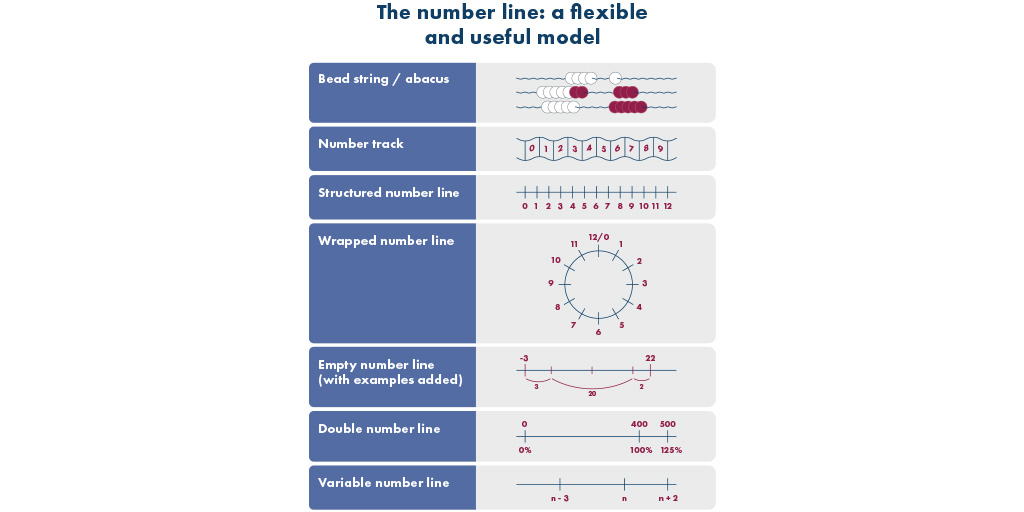02 March 2021

What does research suggest about the number line?
- A number line is a (usually linear) spatial representation of number which helps support mathematical understanding and connections between measure, number and statistics
- Using a number line representation, which is likely to be innate for young children, may form an important part of understanding place value and proportional reasoning
- Number line estimation tasks are suggested as an efficient way to assess broader mathematics competence
- Young children can use bead strings or linear number tracks as early number lines, later moving to notched number lines
- Use of an empty number line model is suggested as it is flexible, allows for student methods/errors to be easily made visible, and is supportive of a wide range of methods
- Training students to use and construct number line models based on their “innate” mental number lines supports mathematical development, and the use of the empty number line can promote conceptual understanding
- Double number lines can help support proportional reasoning, especially highlighting the idea of multiplication as scaling
View EspressoView in NorwegianView References